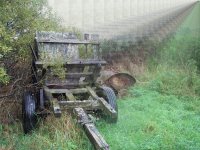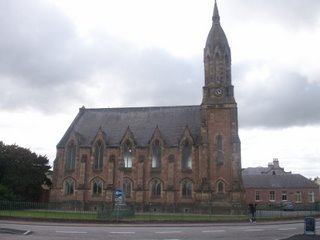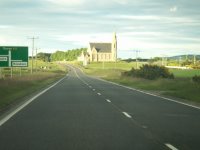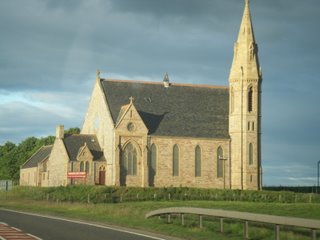Showing posts with label Free church. Show all posts
Showing posts with label Free church. Show all posts
Friday, 14 January 2022
On the road again
Encouraged that I am on the road aagain with John Alexander Wilson, Jimmy Gunn, and Brian Skinner starting next month with some gigs in early February.
Capstone, Alness Friday 4 th Feb 7.00
Dingwall Free Church Saturday 5th February 7.30 (need to book tickets)
Wednesday, 20 June 2018
Census 2011 figures Are they what you expected?
The 2011 Census ( Crown copyright 2013)
Some interesting details from the individuals who responded to the religion questions on the census of 2011.
Scottish Census
Church of Scotland 1,717,871
Roman Catholic 841,053
Church of England 66,717
Baptists 26,224
Episcopalians 21,289
Methodist 10,979
Free Church of Scotland 10,896
Scottish Episcopal Church 8,048
Brethren 5,583
Salvation Army 4,100
Congregational 2,078
United Reformed Church 2,021
United Free church 1,514
Free Presbyterian 1,197
Churches of Christ 979
Church of the Nazarene 785
Apostolic 552
These are the figures for individuals marking on the census. There will be a difference from membership and attendance at the churches.
I know there has been a change since 2011, The Church of Scotland membership figures drop yearly.
I have removed some groups for convenience. ( Christadelphian, Full Gospel Assembly, Mennonite, Greek Catholic etc.)
Tuesday, 22 May 2018
Worship just Psalms ?
A few years ago in Scotland some Presbyterian denominations had a challenge about Worship music. The feeling of using new worship songs or old worship songs instead of purely the Psalms becoming a bit of a struggle.
Also there was the wishes of some to use musical instrument to accompany the worship. By the way I am not knocking Presbyterians stay with me.
Background
Also there was the wishes of some to use musical instrument to accompany the worship. By the way I am not knocking Presbyterians stay with me.
Background
Opposition to Hymns and instruments
is not restricted to one arm of the Presbyterian Church. But James
Begg was a promoter of the use of Psalms and no instruments. Robert
Murray McCheyne was a Hymn writer who found it difficult to leave the
establish Church but did so to support the Free Church ethos.
In 1866 the Free Church voted 3 to 2
for the use of hymns. In 1869 Begg was unsuccessful in curtailing
Hymns. In 1872 the Church accepted the “New Hymn book“ 213 votes
to 61. In 1877 Prof Bruce wished to have their “Own Free Hymn Book”
with Begg supporting a defence of no change position.
Then in 1892 the assembly with drew
permission to use instruments for worship and uninspired Hymns in
public worship.
The Free Church of Scotland is know
for its “Psalm only” singing in Scottish Churches.
In recent years individual Free
Churches of Scotland have had the liberty at session level to decide
if the local Church would sing only Psalm or include Hymns and
spiritual songs. There are about dozen who now incorporate more than
psalms in their worship. John MacDonald (The Apostle of the North)
1779-1849 Ferrintosh, was a Gaelic spiritual verse writer.
Interesting to have an hymn writer in a Psalm singing denomination.
So in recent years when one church was unable to command a final order on worship in its church it asked its local churches to decide for themselves whither to use other songs, and instruments.
I found that really interesting that a good Congregational/Baptist principle was used to aid the Presbyterian churches outcome. Let the local church decide.
Monday, 14 May 2018
New Church in the Highlands part two
Emerging groups
Local focussed activity will bring
a closer fellowship that should be promoting the positiveness of the
Gospel and Church as a body of Christ. Many denominations need to be
in dialogue with their office bearers and members to persuade them to
be active in their locality, trying out new ways and activities to
accommodate the church in their area and culture. It will surely be
different, for the Church in Caithness, Glasgow, Stornoway or
Dunbar.
There is a need to lay down
prejudices from the pastors, ministers and leaders to show brotherly
concern among the churches for the sake of the kingdom. Perth
Christian Centre's, Monthly leaders meetings in Inverness is a step
in the right direction.
The aspects of “Renovare”, focus
prayerfully and intelligently on supporting the Church. Their
encompassing work has a contemplative form of which will be mentioned
later. In the meantime it is encouraging to see work in the Americas
and now in Europe (Renovare Britain and Ireland) that embraces a
wide spectrum of practises in a spiritual manner. “The Spiritual
Formation” is at the heart of the work. This work will grow in the
following years.
The way forward is spirit filled
work across Churches and communities engaging both Christians and
those with no present faith. The church has not learned the lessons
of the 19th century that Christians need to be involved in community
life.
In Scotland and the rest of the UK
there is a gap, which has arisen during the past two generations, of
no real involvement in the community (there are some exceptions) plus
the change in culture. The culture change is one that needs address.
We have less and less social/nominal
Christians going to church which clears the way for a genuine work of
the spirit. People are less interested in turning out to be seen as a
community figure head. Added to this we have a culture quite
different from America. In the UK the post-modern era requires a
different form of Evangelism!
For
church to work in this new age its not simply a lesson of four laws,
a template, a plan. In fact internationally the emerging church is
looking at how to be the community first rather then look at plans.
The tee shirts in America that say
“Don't go to church” and on the back say “Be the
church” says something very profound - its not just going to
meetings its giving over to God.
There is a danger here that
meetings, agendas, time allocated work, compartmentalised church
life, in turn this creates a church and non-church divide, this so
called secular and non-secular arena. Again rather than a subculture
that acknowledges the God spots in the week and all else is
“worldly”,how about a culture that has input from practising
Christians in the community. Elizabeth Fry's influence on community
came from her community life driven by her personal faith.
There were times of revival to touch
Caithness in the Church’s history. Perhaps most notably was that of
the 1920s when the ministry in singing and preaching of Jock Troupe,
of the Salvation Army, saw churches, including Wick Baptist Church,
and places like the Braehead and Market Square in Wick, packed out.
It cannot be denied that the Church as a whole in this country has
declined in numbers since those days but many believe there are signs
of change.[Wick Baptist ]
Going back to the 1830's, and the
Ten Year Conflict, this maybe a large concluding step, the result of
underlying movement from the Irving, Erskine, Campbell revisit of
Scriptures and the New Testament church? In these years in question
there was a change in Society, a moving away from old style thinking
and doctrine. This gave a fresh opportunity for Godly things that may
have been curtailed in the Calvinistic straight-jacket.
Sunday, 13 May 2018
New Church in the Highlands ...Take stock Part One
A brief look at the
Baptist Witness and increase in particular for the Highlands and
Islands of Scotland by Brian Robertson
Background
With some
years working in the Highlands, then away and back again several
times, I have had the opportunity to be in church circle and observe
the changing state over a 25 year gap.
During
that time I have been in leadership in Alness, Thurso, Perth,
Dingwall, Pitlochry and now back in Perth. In two of these situations
I was privileged to see a fresh growth in maturity and numbers in the
Church. I have also spent time South of the border and seen other
church situations. I draw on this experience with also my Baptist
origins in Stirling to comment on the Highlands and Islands work.
But
before that, it is important to consider the current situation in the
Western world.
Why
must the Western Church study Culture today?
- Because of the incarnation. Jesus did it.
- Cultural understanding is essential as good mission practise
- Christendom and Modernity are in rapid decline
- The West is in the midst of a huge cultural shift
- The Church is in decline (numerically)
- Current church practises are cultural accommodations to a society that no longer exists
- Primary modes of communications in the Western world and culture have changed.
- New culture means new organisational structures are required.
- The “Boomers”(over 46's) are the last generation happy with “modern Church”
- Increase appeal of Spirituality derived from other religions
- Many Christians no longer follow the religion of their parents' 2nd generation not coming through!
However
it would be worth the Baptist community considering the future “state
of play” so that we can be effective where we are in the changing
world. This, with the Spirit of God blessing the plans, and activity
could turn the community around and increase the Kingdom. This is
particularly relevant to the Highlands who, as a new generation, are
looking for spirituality but all they know is Presbyterianism.
The days
of Sankey we know are over but, so too, the days of Hillsong and
other Modern large praise events are probably on the decline.
Some
churches are doing a “new” old church, when maybe the answer is a
“new” new church!
I sense
with others that the new generation of believers are looking for
reality in Christian practise, no religiousness, more reflectiveness,
less clutter and a strong “missional” discipleship under the code
name in America of “Spiritual Formation”. (“Google”
Spiritual formation!)
It is not
a simple matter of the Church re branding. The changes in culture
have been too great for church to change in “window display”.
Recall in the past the printing press and the education of the
community linked to the church. The corresponding requirement for an
engaging church in the community, that is not a sub-culture, but is,
or changes, the culture is clear. This has not to be a liberal or
compromising stance but rather relevance, rediscovery,and, in fact
more biblically based mission. The “Hillsongs” mega churches
might not survive even if they don't ever make an impact in Highland
Scotland.
The church needs to be looking at ways to deal with those who want to be submerged in the culture and not seen to be different from others and to the individualists who make a stand on their pet conviction. A tough task. Yet I think there are those being groomed by God for the job, some closer than you think.
What
is happening
Pockets of interest have been formed who want to move towards a
commitment together. In November 2007 15 were baptised as believers
in Brora- did the Union know? Were they invited?
There are “Baptistic” gatherings in Castletown, Dornoch, Lairg,
Brora, Tain.....
Thirty years ago it was impossible to think of a Baptist Church in
Dingwall , yet it has been constituted for more than 10 years. In
fact there is another “baptistic” Church in the town.
Stornoway, New Elgin, Argyll, and Fort William have glimmers of
hope. Kinlochbervie has like-minded folk.
Possible
future
So how
does the Church invest in the future in a new church framework that
caters for the Highlands and Islands? How does the Baptist Union look
at the Highlands?
Is it a
duty we better do something or is there a burden to help those who
want to press their heads above the Presbyterian plateau? How do
Scottish Baptists facilitate the “promotion” of “baptistic”
gatherings in areas where Scottish Baptists are simply not known?
Especially when these groups have not considered all the Baptist
principles that Baptists adhere to. How does a Union accommodate
Baptistic groups still on a road of discovery, without it looking
like the Union is shoving the group through a Baptist programme, like
a mincing machine with groups coming out with the same inclination at
the end. North of Inverness Baptists are placed in the group of
“strange” people like Mormons and JWs.
How does
the Baptist Union promote to non-baptists that there may be
similarities in thought?
There are
many in the Highlands who watch God TV and want to participate in
modern worship. Many have moved to settle in the Highlands with a
wider church life experience.
I carried
out a small survey with a group in Brora who were considering setting
up a fellowship. They marked high, Worship, and regular Communion -
Baptism was an agreed assumption - their conviction was “believers
baptism” .
Reasons
for a Baptist Church - Brora feedback Oct 2006
Missional
In an age after the post-modernist
the structure and effective communication of the Church to the
unchurch, requires a total re-think. This is particularly hard for
the Highland Presbyterian churches who work from a dated template
that in some quarters has lost its relevance. Activities to the
unchurch that worked say 20 years ago will not work these days. While
the message must stay the same, and there was a danger in the 1970's
that the method change messed up the message (not a problem now), the
presentation must be appropriate to the audience and age. In a
culture of switches, electronic media, i-pods and downloads, there is
a clear need for a professional presentation to the masses that
engages them before they even enter a church building.
When the large PLC market a new
brand or product there are hours and hours of getting the message
across and the need for the product goes before the product launch.
The hype for X-box 360 started before a box had been created.
I would suggest that today the norm
should be power point presentations to support the preaching and
words for all praise on visual screens.
One
cannot consider the "neglecting the saints .." as a
constructive way forward but new ways of communicating new ways of
fellowship are inevitable for future generations.
Electronic
communications
Role
of Internet-Hyperspace is not as relational as face to face.
There are many Internet Churches
throughout the world and, although this form of fellowship is good,
it does lack the personal relationship with the face to face.
Scottish Christian website is a solid communication assisting the
church. Interestingly the logs linked to the website have a large
number of Scottish Episcopalian contributors. I wonder if this is a
denominational preference or an aspect to the age of the ministerial
staff. It might also be that one individual had an influence on other
clergy colleagues. Nevertheless the use of logs is widening the
communication among themselves, their sheep and the wider bloggers.
One American church leader said “I engage with the community. If
they want to hear me preach, I preach on my blog!”
Monday, 18 May 2015
Church of Scotland
Church of Scotland votes in favour of allowing ministers in same sex civil partnerships
May 16, 2015
 Thje Church of Scotland has voted in favour of allowing people in same sex
civil partnerships to be called as ministers and deacons.
Thje Church of Scotland has voted in favour of allowing people in same sex
civil partnerships to be called as ministers and deacons.The outcome is the culmination of years of deliberation within the Church. The motion has faced a series of debates and votes before the final decision was arrived at this afternoon. This included 31 of the Church’s presbyteries endorsing the move to 14 who opposed it.
This means the Church has adopted a position which maintains a traditional view of marriage between a man and woman, but allows individual congregations to ‘opt out’ if they wish to appoint a minister or a deacon in a same sex civil partnership."
I am not making comment on the theology but taking note similar to the Free Church of Scotland with regard to Worship when it comes to a difficult answer the local congregations are given the authority to choose!
Is this not a good Baptist principle ? the local church decides and not some authority out with the locality.
Monday, 16 July 2007
Wednesday, 20 December 2006
Narrow escape
At Rosehall, Sutherland, on the first Sunday after "the Disruption" the people gathered at the usual time in the open air to worship. At the very time they would have been in the local Church of Scotland for worship the roof of the building fell in. No one was hurt but the providence of this is felt and was felt for many years after the event.
Wednesday, 8 November 2006
More

MacRae spoke at one meeting of the Free Church Stornoway on the:
Unusual features of the present religious movement in Lewis.
He was convinced there was a revival in Lewis and a work of God. But he wanted people to consider some of the peculiar features of it.
In particular MacRae wished the meeting to consider that in Park... convulsive fits.
Grimshader ...Trembling or tremors...With crying.
At Point and Shader trances and women praying and exhorting ( ...and a good deal of disorder).
He noted further
Those or some could not give an explanation to what was happening. Rather than looking for the work of the Holy Spirit people were disappointed if there was no manifestations.
Secondly MacRae saw a sense of superior order of Christians taking hold with those who had experienced some of the manifestations.
He felt that matters might lead to unscriptural extravagances.
He also talked and reported on other happenings in the country, quoting Kilsyth and Cambuslang.
He concluded that the manifestations were neither good or evil but hysteria.
He quoted the medical observations for hysteria.
Highly strung people mainly young women
Infectious
Associated with convulsions tremors and trances
Attacks are always in an audience never alone.
Those effected say they could not help themselves.
If wanted to those effected could have controlled themselves.
Delusions and hallucinations
Consciousness not lost.
MacRae was concluding that mass hysteria was happening in Lewis and his concern was separating it from the work of the Holy Spirit.
Hi did specifically acknowledge the work of the Holy Spirit at that time.
Quoting the action of McChenye from Dundee. He was supporting the need to have religious meetings closed by 11.00 pm. "Lest Good be evil spoken".
It is clear from MacRae there is a need to discern what is of God and a work of the Holy Spirit and what is not. While he saw the Lewis revival as of God, not all was his making. It is easy to be tricked in times of revival to assume all phenomena are in connection with the spirit of God, and to question it is to hinder that Revival. There is a more discerning Church today- but a good warning nevertheless.
Friday, 18 August 2006
A9 Rosskeen
Dingwall and Strathpeffer Free Church of Scotland

The building of the Free Church of Scotland Dingwall is a fine building sitting proudly at the end of the High Street across from the railway station. I am convinced that Dingwall, geographically, has a strategic importance to the Highland church of the future. Interestingly the Theological College moved to Dingwall from Elgin some years ago.
Wednesday, 2 August 2006
Rosskeen Free Church Ross shire
Subscribe to:
Comments (Atom)








.JPG)
.JPG)


